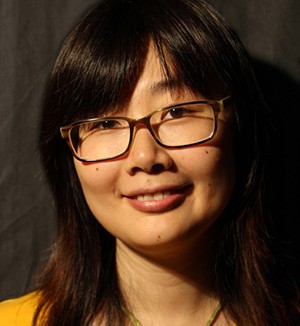
Lijuan Bi
How Are You Teaching?
Go Slow and Be Flexible
Courses Taught Remotely:
- Math 1075 (two sections)
- Math 1130
- Math 2137
Prof. Bi joined Ohio State Newark as a math lecturer in August 2018 and has 12 years of teaching experience, including time as a math teaching assistant. She shared an hour-long Zoom session she conducted with her students during which she modeled two of the strategies she recommends when teaching remotely: "I think it may be a good idea to go slower at the beginning of an online (synchronous) class," she explains. "It helps students get used to online learning." She also advocates flexibility in formats, blending synchornous and asynchronous options for engaging with the instructor, peers, and course content.
Prof. Bi encourages participation throughout a Zoom session, asking for and responding to questions, providing positive reinforcement, and acknowleding students individually for their efforts. "I always encourage my students to participate," she comments. "My students liked participating when we had face-to-face classes." She is purposeful in allowing time for students to think after first introducing a problem.
She also asks for feedback: "I asked them how they liked my online classes. Some students said it was the same as the face-to-face class. Some students said it was challenging because it was easier for them to get distracted when they studied at home. For me, the most challenging part is that it is much harder to help most students one-on-one. ... When I talk about an example in a face-to-face class, I give students a few minutes to ... talk about it with their neighbors. Meanwhile, I walk around the classroom to answer their questions and look at each team’s work. Then I ask them how far they got, and I guide their thinking from there."
 "Best practice strategies for effective use of questions as a teaching tool" "summarizes the taxonomy of questions, provides strategies for formulating effective questions, and explores practical considerations to enhance student engagement and promote critical thinking."
"Best practice strategies for effective use of questions as a teaching tool" "summarizes the taxonomy of questions, provides strategies for formulating effective questions, and explores practical considerations to enhance student engagement and promote critical thinking."
In addition, the University of Illinois Center for Innovation in Teaching & Learning offers this resource for Questionning Strategies.
